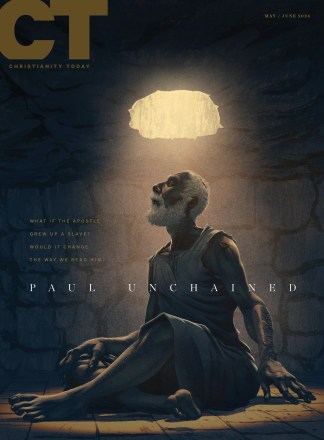George Herbert
Herbert isn’t my favorite poet. (My son is named after W. H. Auden.) For devotional poetry, however, he’s as good as it gets. Herbert was an up-and-coming priest and scholar in the early 1600s, destined for a life of ecclesial or political fame. But he chose obscurity at a rural church so he could devote his life to a slow attention—both to particular people and to his poems, which continue to strengthen and challenge my faith through their beauty.
Marilynne Robinson
Gilead is told from the perspective of John Ames, a dying Presbyterian pastor writing a letter to his young son. He wrestles with issues of race, his past, and loss, but his main theme is learning to love and bless his godson, Jack. In a world full of brokenness and ordinariness, Robinson helps me see the mundane “shining like transfiguration.” She helps me pay attention, which is another way to say love.
The Supper of the Lamb: A Culinary Reflection
Robert Farrar Capon
The Supper of the Lamb is a cookbook by an Episcopal priest. Sort of. It’s also a meditation on food, cooking, art, and beauty. Capon reimagines every meal as a sacrament. I love how he describes his qualifications: He’s an amateur, which derives from the Latin word for lover. As amateurs, he writes, we “look the world back to grace.” Spiritual formation is not about mountaintop experiences but everyday occurrences—like preparing and sharing a meal.
Domestic Monastery: Creating a Spiritual Life at Home
Ronald Rolheiser
The premise of this book is that parenting is like running a monastery. That sounds like a bold claim. As a parent of three young kids, I often feel far from monastic peace and serenity. But Rolheiser suggests that raising young children with love and attention can form you as a monastery would. In place of a ringing bell, a child’s “interruption” can call you to prayer. Also, parenting is a place where we learn powerlessness, much as a monastery teaches.
Letters to a Diminished Church: Passionate Arguments for the Relevance of Christian Doctrine
Dorothy L. Sayers
In this essay collection, Sayers helps connect doctrine (what we believe) to our story (the way we live). In her well-known formulation, the dogma is the drama. Covering a range of topics, including theology, women, work, and art, this book is about the whole of life—which is to say it’s about formation. Sayers draws together the relevance of all things, including theology, and helps us see how all of life is formative.










